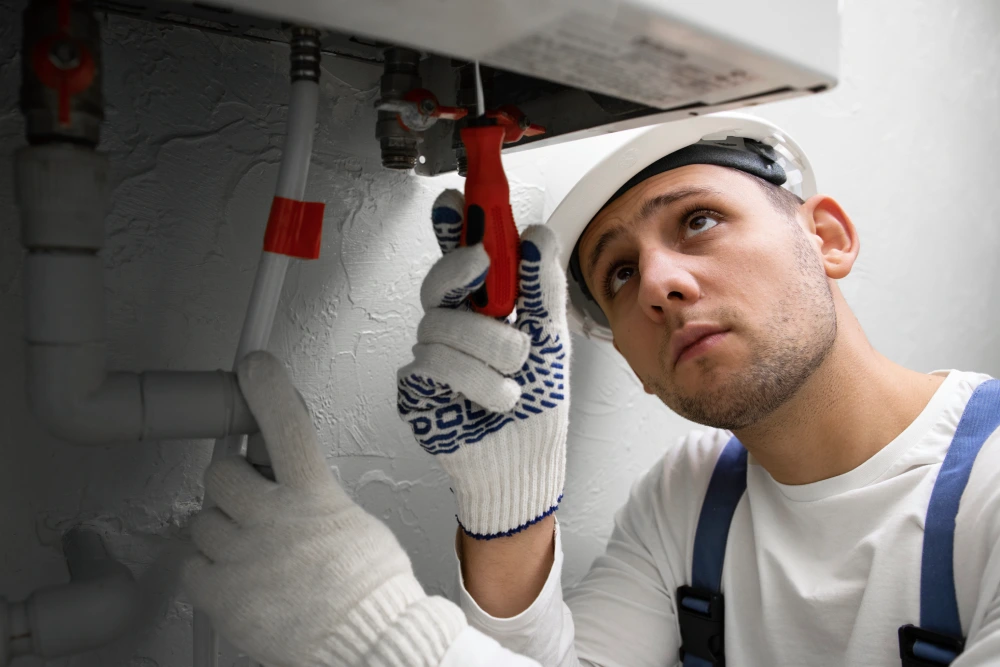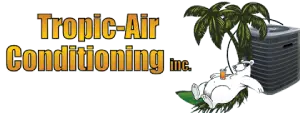Regular HVAC maintenance is vital to keeping your home or business comfortable year-round. It’s also essential for ensuring the safety and efficiency of your system, as well as avoiding costly repairs. Without proper upkeep, these systems are susceptible to dirt buildups which could lead to potential health hazards. Regular inspections by certified technicians help identify problems before they become serious. Preventive maintenance helps extend your system lifespan.
In this article, we’ll explore why regular HVAC maintenance is so important, how it saves money, and what services should be included in a routine checkup.
HVAC stands for Heating, Ventilation, and Air Conditioning. It is a system that provides thermal comfort in buildings by controlling air temperature, humidity levels, and airflow. HVAC systems comprise furnaces, boilers, chillers, cooling towers, heat pumps, air handlers, and ductwork.
The heating system typically includes a furnace or boiler, which heats air to be distributed throughout the building’s interior via ventilation systems. In addition, the cooling system utilizes an air conditioning unit to cool down warm indoor temperatures in hot climates. Ventilation systems move fresh outdoor air into the building while removing stale indoor air.
Lastly, the air conditioning system controls the temperature and humidity inside the building, providing occupants with optimal environmental conditions year-round. Regular maintenance of these essential components should not be noticed as it plays a vital role in ensuring the efficient operation and performance of any HVAC system over its lifetime.
Stages Of Maintenance
Preventive Maintenance is the first step of a successful maintenance program. It entails routine inspections of your HVAC system where filter cleaning and tune-up services are performed on all unit components. This process helps identify any potential problems that could arise before they happen, allowing corrective action to take place without interruption to service or expensive repairs down the road.
The second maintenance stage involves deep inspection processes, which aim to catch any issues that may have gone undetected during preventive maintenance checks. Inspections will typically look at electrical wiring systems, motors, fans, condensate pumps, air handlers, and other parts of the unit – ensuring they’re operating correctly and safely. If anything appears faulty or outdated, immediate attention should be given as this can cause more serious damage if left unchecked.
Ultimately regular maintenance is necessary for both safety and energy efficiency purposes; it ensures you avoid getting stuck with unexpected costs due to repair needs and keeps utility bills lower by ensuring optimal operation of your HVAC system year-round!
Benefits Of Regular Maintenance
Regular HVAC maintenance is key to keeping your system running efficiently and reliably. It’s important to have an expert regularly inspect and service your system, as this can save you time, money, and energy in the long run. In addition, regular maintenance will help ensure that all components of your HVAC system are working correctly, which helps improve air quality and performance.
By having a professional inspect and maintain your unit regularly, you’ll be able to identify any potential problems early before they become costly repairs. This will also increase the longevity of your system, so it’s less likely to need replacing anytime soon. Additionally, with proper maintenance, you can significantly reduce energy costs since well-maintained units tend to use less energy than ones that haven’t been serviced for some time. Investing in routine servicing now could save you thousands in the future.
Cost Considerations
The cost of regular preventative service and upkeep is typically much lower than repair costs or system replacement fees incurred due to neglecting a unit. Here are four reasons why investing in regular HVAC maintenance makes economic sense:
- Regular service visits can detect system issues before they become more expensive problems.
- Preventive services help keep parts functioning efficiently, which reduces energy bills associated with running equipment.
- System repairs needed due to avoidable issues will be more costly than those resulting from properly maintained units.
- Scheduled HVAC maintenance ensures that warranties remain valid on all components and allows for timely replacements when necessary.
The cost of these services varies depending on factors such as the size and complexity of the system. However, most industry professionals recommend scheduling an inspection at least once yearly to ensure adequate performance levels over the long run. While there may be upfront expenses involved, it’s important to remember that paying now could save you considerable money while also providing peace of mind.
Professional Services
A professional HVAC technician regularly inspects and maintains your air conditioning and heating system is essential for preventing costly repairs. A skilled technician can identify potential problems before they become serious, which saves time and money in the long run. Preventative maintenance performed by an experienced HVAC technician can also extend the life of your system, reducing energy costs over time.
The benefits of hiring a qualified technician go beyond just maintaining your current systems; they can help you select new systems that are both cost-effective and efficient. They can advise on the best types of equipment for your specific needs, ensuring you get the most out of your investment. If something goes wrong with one of your units, a good technician should have access to all the necessary tools and parts for heating repair or replacement work.

Frequently Asked Questions
What Are The Potential Hazards Of Not Performing Regular HVAC Maintenance?
One of the most significant risks posed by poor HVAC maintenance is the improper operation of certain components. When an HVAC system isn’t regularly serviced, key parts like blower motors, condensers, compressors, and pumps may become clogged or damaged due to a lack of lubrication or wear and tear over time. This can lead to excessive energy consumption and increased repair costs.
Other potential dangers from poorly maintained HVAC systems include fire hazards stemming from overloaded circuits; carbon monoxide buildup caused by blocked flues; inadequate ventilation leading to dangerous levels of humidity in living spaces; and even biological growths such as mold or mildew resulting from unclean air filters that aren’t replaced on schedule. All these issues are avoidable with regular inspections and routine servicing.
Your HVAC system must receive timely repairs when needed – but more importantly: proper preventative care through consistent service appointments every few months or so will ensure optimal performance.
How Often Should An HVAC System Be Serviced?
Homeowners and business owners commonly ask how often an HVAC system should be serviced. The answer to this depends on several factors, including the type of HVAC system in place and usage patterns. Generally speaking, servicing schedules for HVAC systems can vary greatly depending on their specific needs; however, regular maintenance is essential for keeping them running smoothly and efficiently.
Regarding the proper frequency of service scheduling, experts recommend having your HVAC system inspected at least once per year by a qualified technician or contractor. This will ensure that any potential problems with the unit are identified before they become more serious issues down the line.ᅠ
Are There Any DIY HVAC Maintenance Tasks That I Can Do Myself?
Absolutely! You should be able to handle several regular maintenance tasks around your home’s HVAC system. As a knowledgeable HVAC maintenance expert would tell you, these include:
- Cleaning or replacing air filters every one to three months
- Inspecting and cleaning the blower assembly regularly
- Checking for refrigerant leaks in an AC unit annually
- Sealing ducts when necessary.
These simple yet essential steps will help ensure your system runs as efficiently as possible while preventing more costly repairs. However, some of these tasks may require specialized tools or knowledge that only a trained professional can provide – such as checking refrigerant levels or inspecting electrical components – which is why getting a professional tune-up at least once a year is so important.
Are There Any Government Incentive For Regular HVAC Maintenance?
Regular HVAC system maintenance is essential for running it efficiently and avoiding costly repairs. But did you know that government incentives are available to help offset the cost of doing routine HVAC maintenance?
Several federal programs offer financial assistance for homeowners who need help with their HVAC systems. These include:
- Tax Credits: Certain tax credits may be available depending on where you live and the type of equipment installed in your home.
- Energy Efficient Home Credit: This credit applies to energy-saving improvements such as adding insulation or replacing inefficient windows and doors.
- Residential Renewable Energy Tax Credit: If you install certain renewable energy sources in your home, such as solar panels, you could qualify for this tax credit.
- Rebates: Local governments or utility companies sometimes offer rebates on eligible HVAC replacements. For example, if you upgrade an existing furnace to a more efficient model, you may receive a rebate from your local utility company.
- Financing Options: Some HVAC contractors offer financing options so customers can spread out payments over time instead of paying upfront costs all at once.
What Are The Most Common Problem Associated With HVAC Systems?
One effective approach is to focus on prevention first – detect small changes in performance, such as fluctuations in temperature levels, unexpected noises, or weak airflow. These are all signs pointing toward potential underlying issues which may require your attention sooner rather than later. Here are a few of the main culprits:
- Leaks
- Noise
- Blockages
- Corrosion
- Faulty wiring/connections
System leaks can result in water damage if left unchecked; noise could indicate blocked ventilation points; corrosion over time can weaken joints within the system; faulty connections may cause power outages or surges in energy bills. Therefore, we must take regular steps to keep our HVAC units running optimally for years down the road.
Conclusion
Regular HVAC maintenance is essential and should be noticed. It can save you a lot of money in the long run by preventing costly repairs and keeping your home comfortable year-round. Not only will they be able to identify any problems before they become more serious, but many government incentives may also be available to offset the service cost.
At Tropic Air Conditioning, our expert technicians ensure you receive quality HVAC system maintenance, particularly for residents seeking reliable air conditioning in Sarasota, because we believe you deserve a safe and comfortable living space. Let us help you take care of the small problems. Contact us today.




